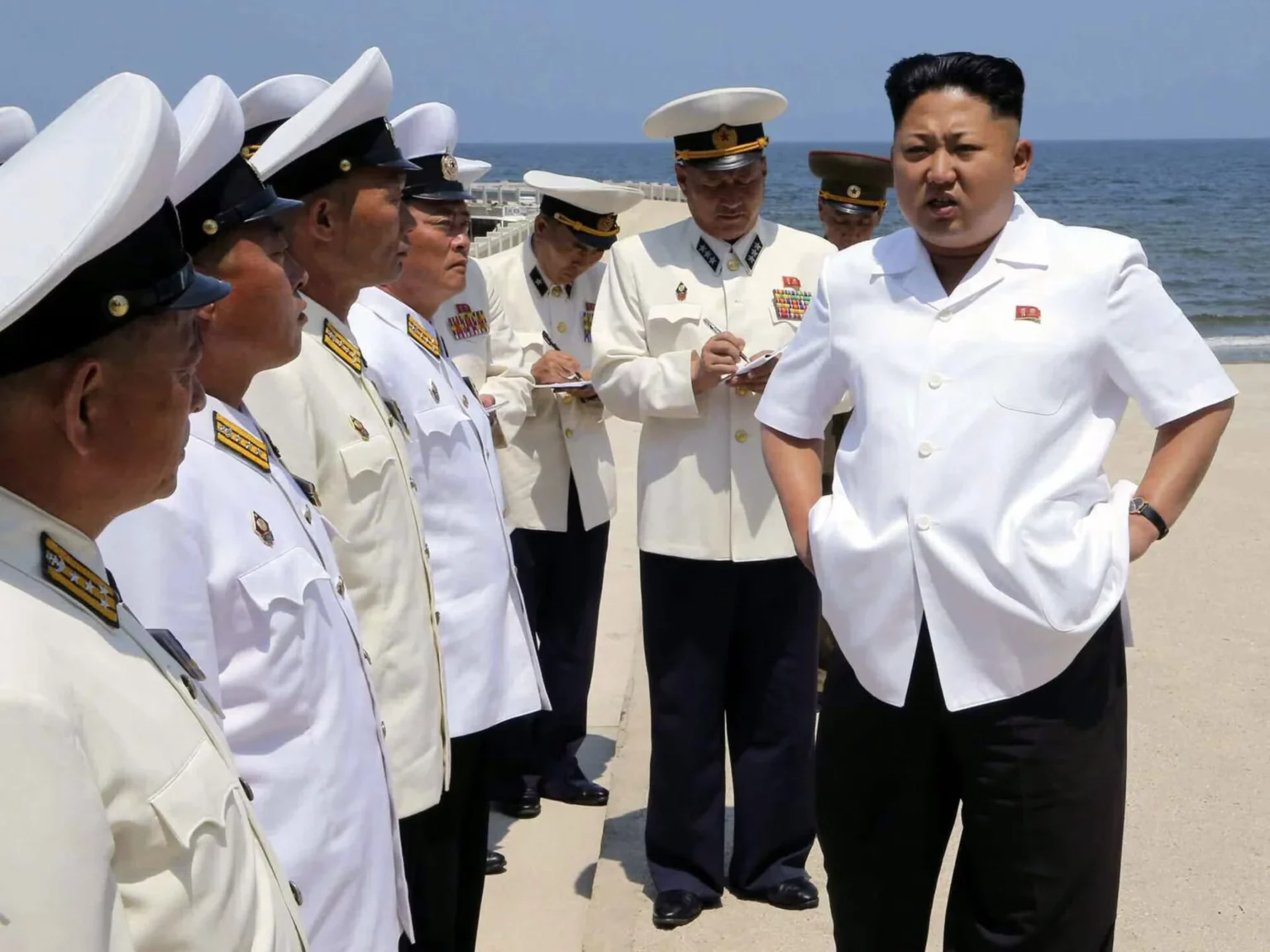North Korean leader Kim Jong Un’s recent visit to a naval unit and the subsequent oversight of a strategic cruise missile test have raised concerns and tensions in the region. This development coincides with the start of joint military exercises between South Korea and the United States, further intensifying the already complex geopolitical landscape in the area.
Kim Jong Un’s Naval Inspection and Missile Test
North Korea’s state media reported that Kim Jong Un visited a naval unit and observed a test involving strategic cruise missiles. The naval exercise took place in the East Sea, also known as the Sea of Japan, and featured the launch of these missiles by the crew. The intent behind this drill was to verify the ship’s combat readiness and the efficacy of its missile system, ensuring that seamen are well-equipped to carry out attack missions during actual wartime scenarios.
While specifics about the timing of Kim’s visit and the nature of the missiles were not provided, the state-run news agency KCNA highlighted the successful accuracy of the missile strikes, noting that they hit their designated targets without any errors.
Skepticism and Monitoring
South Korea, however, expressed skepticism regarding the accuracy of the KCNA’s report. Seoul’s Joint Chiefs of Staff released a statement asserting that they had been actively monitoring relevant indicators and had detected them in advance. This suggests that the KCNA’s portrayal of the events may have been exaggerated or misleading.
Joint Military Drills and North Korea’s Response
The timing of North Korea’s missile test is notably significant, aligning with the initiation of the annual Ulchi Freedom Shield drills—an extensive joint military exercise conducted by South Korea and the United States. These drills, designed to address the escalating nuclear threats from North Korea, are set to continue until August 31. Pyongyang has consistently condemned such exercises, viewing them as rehearsals for a potential invasion and warning of robust retaliatory actions.
The missile test occurs against the backdrop of recent diplomatic efforts. Just days before these events, US President Joe Biden hosted a summit with South Korean leader Yoon Suk Yeol and Japanese Prime Minister Fumio Kishida. The leaders emphasized their commitment to strengthening security cooperation and fostering diplomacy in the region. However, North Korea’s actions underscore the complexity of these diplomatic endeavors, especially as Kim’s regime continues to flex its military capabilities.
As tensions rise due to the missile test and ongoing joint drills, the region remains on edge. The current situation highlights the challenges of navigating diplomatic negotiations and managing security concerns in a volatile context. Despite diplomatic efforts to encourage dialogue, North Korea’s ongoing missile tests signal a continuing hurdle to peace and stability in the region. The international community watches closely, hoping for a peaceful resolution to the complexities presented by North Korea’s actions.




